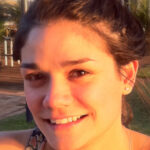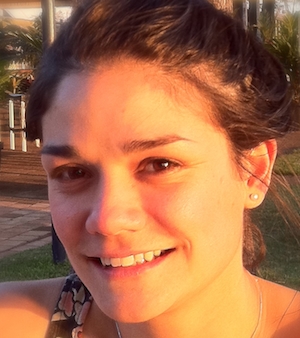Recently I was watching Q&A on the ABC. For those of you who’ve not seen it, Q&A, short for Questions and Answers, is a debate-style programme which brings together a panel of politicians and other prominents, and takes questions from the audience regarding topical issues. Every week I find myself intensely frustrated by the ‘answers’ that members of the panel give and every week I swear I won’t watch it ever again.
Alas, last Monday I found myself watching again—and wanting, again, to throw my cup of tea at the television. One of the discussions was the forever-contentious issue of whether or not ethics and philosophy should be taught in schools. While I don’t wish to quote anything outside of the context in which it was said, many of the panellists did take on the ‘we should only be teaching our kids the facts—that is, maths and science’ line of argument, which in turn roused great applause from some of the audience. I find such a staunch standpoint a dangerous one. To me it says: Righto, shut the books! Stop thinking! We know all the facts—now, we just need to spread them.
If you were to look up a definition for the word ‘science’, you’d come across words and phrases like ‘knowledge’, ‘a state of knowing’, ‘a system covering general truths’. We all turn to science and research for the truth. We look to science for facts on how to maintain a healthy lifestyle; the medications we ought to take; the skincare products we should be buying—the list goes on.
A lot of what we might take to be ‘truths’ however, whether it be individually or as communities, may just be points of view. For instance, we all choose certain newspapers, television stations and journalists that we trust more than others. Often based on past experience, we make personal decisions based at least in part, I believe, on finding that source of information which will provide us with (what we think is) a balanced viewpoint, free of bias. I personally have my journalists whose columns I choose not to read, because I’ve found them in the past to be unbalanced or biased. But, maybe they’re just saying something that I don’t agree with? Something I don’t want to hear?
Only days after Q&A, Lorimer pointed me in the direction of a piece recently published in the New York Times. Biased but Brilliant, by Cordelia Fine, an academic psychologist and author, challenges us to rethink the way we view “scientific truth”. She alerts us to the fact that scientists are not immune to what she terms “pigheadedness”; that people in science, like the rest of us, develop an often irrational loyalty to a certain belief system. Incidentally, there’s a distinct possibility that that belief system has been formed only on data that’s been published. What about the science that isn’t published? [1]
I can see why Fine is concerned by this “pigheadedness”. “Doesn’t the ideal of scientific reasoning call for pure, dispassionate curiosity?” she asks. It’s clear that our community relies on science to pass on important findings. But if all of us, as scientists or as members of the community, just quote ‘facts’ and don’t continuously question our assumptions, we might miss something important. And if those panellists on Q&A have it their way, the coming generations will be in serious trouble when one of these truths or facts is challenged (life on another planet, or chocolate having more nutritional value than sprouts, perhaps?) and they have to head back to the drawing board, with no reasoning skills.
For all this stuff, we’ve come a long way in science and no doubt will continue to do so. But maybe progress will be even faster if scientists admit to falling into the same traps as everyone else. I think then we’ll see better quality arguments and discussions of even completely-opposite ideas. Here’s hoping our kids and our kids’ kids will have the capacity to engage in such interaction…
I’m going to finish off with a bit of advice from Charles Darwin—some advice he was known to give to young scientists: ‘if you notice something that doesn’t seem to support your beliefs, write it down because it is the kind of thing you are likely to forget.’
Flavia Di Pietro
 Flavia Di Pietro is a PhD student in the Body and Mind Research Group, Sydney. She is investigating the development of Complex Regional Pain Syndrome (CRPS) after wrist fracture. Specifically, Flavia’s PhD involves brain scanning people who are in a higher than usual amount of pain in the first 3 weeks after the fracture, and then following them for a few months. Her question concerns whether or not there are changes in brain activation patterns that emerge before the CRPS does and if so, what do they tell us about the condition? Here is Flavia talking about her research and a link to her published research. BiM author’s downloadable PDFs can be found here.
Flavia Di Pietro is a PhD student in the Body and Mind Research Group, Sydney. She is investigating the development of Complex Regional Pain Syndrome (CRPS) after wrist fracture. Specifically, Flavia’s PhD involves brain scanning people who are in a higher than usual amount of pain in the first 3 weeks after the fracture, and then following them for a few months. Her question concerns whether or not there are changes in brain activation patterns that emerge before the CRPS does and if so, what do they tell us about the condition? Here is Flavia talking about her research and a link to her published research. BiM author’s downloadable PDFs can be found here.
Reference
Scholey JM, & Harrison JE (2003). Publication bias: raising awareness of a potential problem in dental research. British dental journal, 194 (5), 235-7 PMID: 12658296




